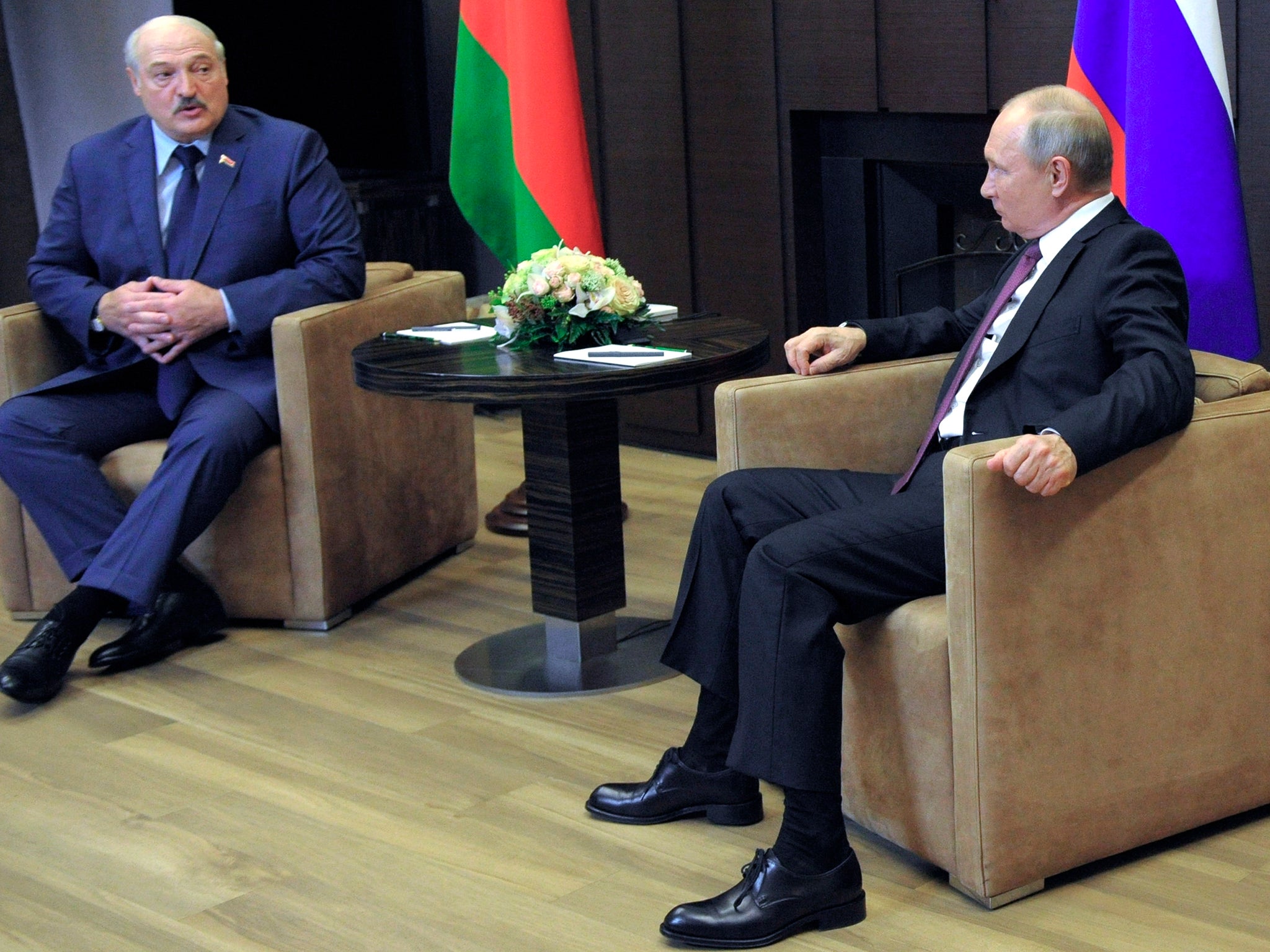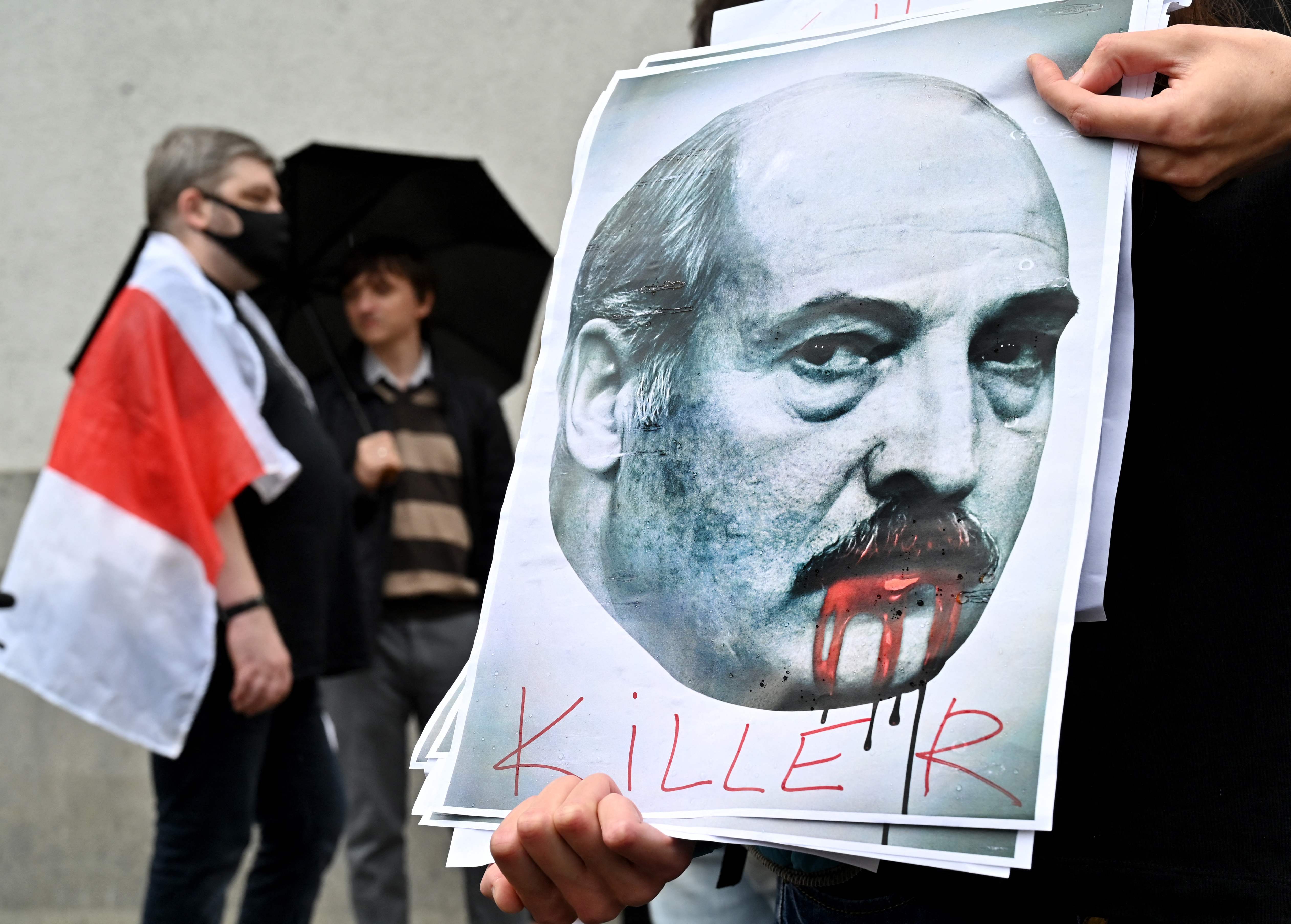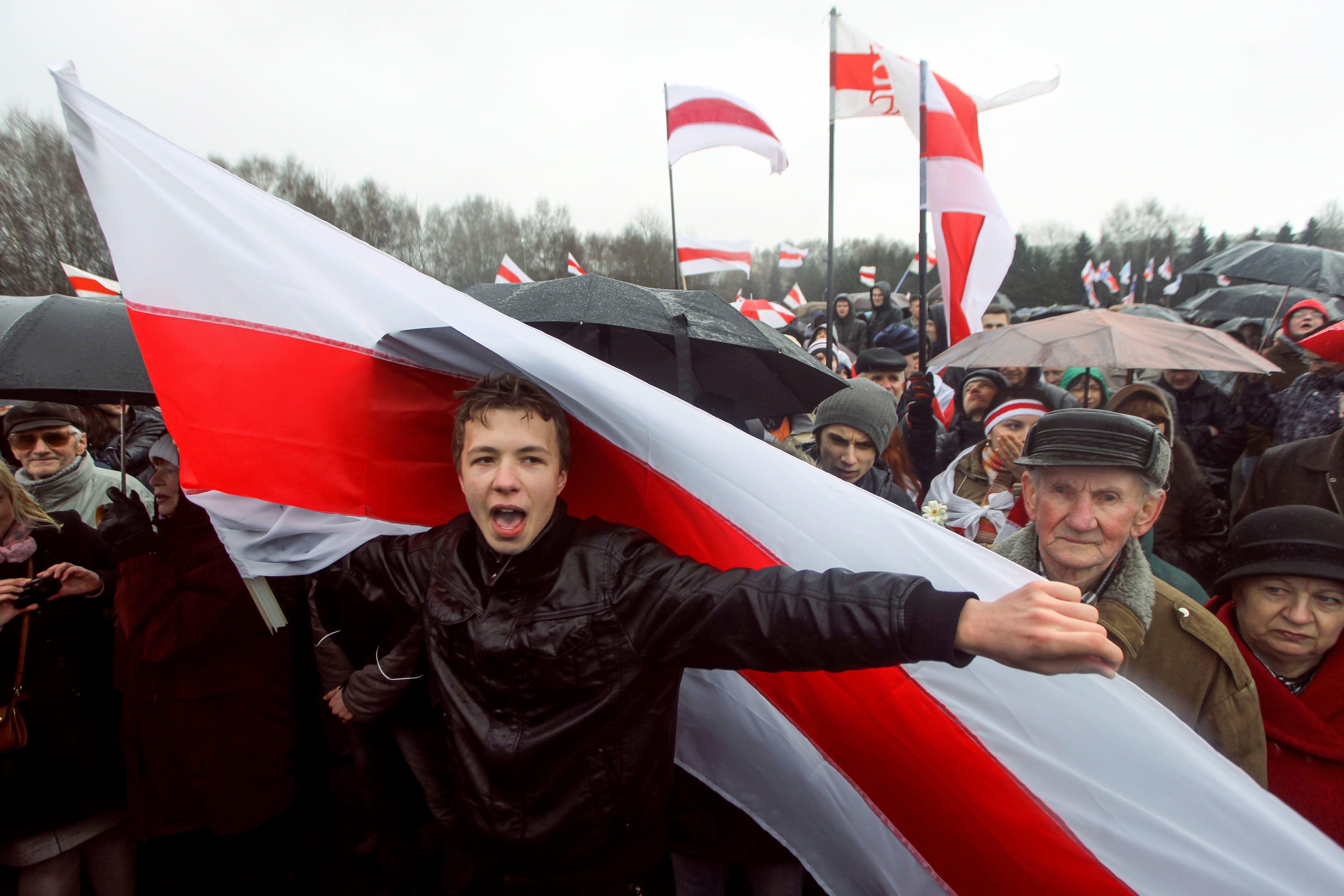Putin hosts ‘toxic’ Lukashenko for talks in Sochi
While the Belarusian president insists he can ‘kick open any Russian door’, Kremlin officials are beginning to wonder if integration is worth the cost

Reeling from headlines across the globe, embattled autocrat Alexander Lukashenko travelled to Sochi on Friday seeking assurances and support from his closest ally, Vladimir Putin.
The talks, in the Black Sea resort of Sochi, were long-planned. They are the third set of talks to take place this year, reflecting the 27-year-old leader’s increased dependency on Moscow.
The agenda items barely differed from those of previous meetings: more cash for Belarus, and political integration for the Kremlin.
But the fallout from Sunday’s passenger jet hijacking, and the arrest of dissident journalist Roman Protasevich and his girlfriend, Sofia Sapega, added a sharp backdrop to the discussions.
Ahead of the meeting, Kremlin spokesperson Dmitry Peskov said he expected Mr Lukashenko to brief the Russian president on both matters.
The Kremlin has so far refrained from public criticism of the official Belarusian narrative, which claims a bomb threat was sent from Switzerland. The claim has been rejected by the Swiss.
For the disputed Belarusian president, these are make-or-break talks. The unreformed Belarusian economy was already struggling before the Ryanair incident. Harsh new EU sanctions targeting key exports are now said to be two weeks away.

Cap in hand, Mr Lukashenko admitted he needed new Russian cash to avoid an economic “crash”.
If he was in any way worried that he might not get what he wanted from Vladimir Putin, he certainly wasn’t showing it. At an improvised press conference in Minsk airport before he boarded his plane for Sochi, the self-styled dictator chided his finance minister, who had dared to wish him luck in the negotiations.
“Luck is a word you’d be advised to keep to yourself,” Mr Lukashenko said. “The decisions will be what I say they will be. I’ll simply present them as fact. I can kick open any Russian door, and they know it well.”
The former collective farm director has historically managed to extract a lot from negotiations with the Kremlin.
According to David Marples, professor at the University of Alberta, Canada, his tactics of playing east against west – while promising greater integration – allowed him to get his own way, to the fury of many in the Kremlin.
But Mr Lukashenko’s recent behaviour has changed the fundamentals of that previous equation. On the one hand, he no longer has the west to play off in negotiations. On the other, even Kremlin officials are beginning to wonder if integration is worth the cost.

“There is a growing sense that Lukashenko has taken Moscow hostage,” says the Moscow-based political expert Konstantin Kalachev. “The sense inside the Kremlin is worry: you can’t not support him, but you can’t support him either.”
Tatyana Stanovaya, founder of the R Politik think tank, says a majority of the Russian elite now views Mr Lukashenko as “toxic”. But that understanding does not extend to the only man who matters.
“For Putin, Belarus has become an internal Russian matter,” she said. “Lukashenko is a son of a b***h, but he’s our son of a b***h.”
Join our commenting forum
Join thought-provoking conversations, follow other Independent readers and see their replies
10Comments